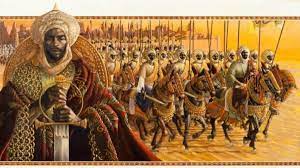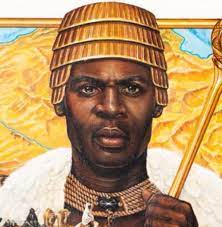This made the fame of Mansa Musa spread all across and beyond Africa. Mansa Musa contributed to the growth of Mali in various significant areas and even to the development of west Africa. Mali was deposited with enormous natural deposits and was mainly known for gold.
His other name was Kankan Musa. He governed for 25 years, from 1312 to 1337. The eighth king before him was Muhammad Ibn Qu. Mali was one of the richest and most expansive kingdoms in the world under Mansa Musa's rule. As a result, Mansa Musa's renown grew throughout Africa and beyond. Mansa Musa had a role in the expansion of Mali in a number of crucial areas as well as the advancement of west Africa. Massive natural reserves were present in Mali, which was mostly known for its gold.

Mansa Musa began his Hajj pilgrimage in 1323, during which he visited a number of locations that helped to establish him and Mali as well-known figures around the globe. Along with a retinue of 12,000 people, he was followed by an entourage wagon of 60,000 men. About 500 men galloped in front of Mansa Musa as he mounted his horse.They each carried a stick that was covered in gold. He also owned roughly 80 camels, each of which could hold 300 pounds of gold. When he traveled to Cairo, Egypt, he distributed so much gold that the price of gold there fell by nearly 25%.
It took some time for the price of gold to regain stability in Cairo. His pilgrimage was unique and attracted a lot of attention. After his voyage, which was notable for making him the first Muslim Emperor to visit Mecca, he profoundly changed Mali. Mali's Islamic education expanded as a result of the numerous Muslim scholars he brought there. To this end, universities, libraries, and mosques were constructed in Mali. Additionally, he hired experienced architects who created stunning architectural plans for Mali. Ishaq El Teudjin, who created the Djinguereber mosque in Timbuktu and a new palace and mosque in Gao, was one of the individuals he took with him.
El Teudjin's most well-known creation is the Emperor's chamber, which is located in Niani, the capital of Mali. Timbuktu was developed into a commercial metropolis under Mansa Musa, and it maintained contacts with Egypt and other North African nations via caravan. In Timbuktu, learning and the arts were highly fostered in addition to trade and commerce. The SanKore mosque in Timbuktu evolved into a learning facility before becoming the university of SanKore. Under Mansa Musa, Mali also expanded into one of the most expansive regions as he overthrew numerous other kingdoms, including the Songhai empire. Mali, Senegal, Gambia, Guinea, Niger, Nigeria, Mauritania, and Burkina Faso are all included in the modern-day Empire of Mali.
Mansa Musa established the Mali kingdom's reputation as a very successful king. He left Mali a vast realm when he passed away in 1337. His sons succeeded him, and the Mali kingdom ultimately broke up, but the country's standing in the globe never faded.
